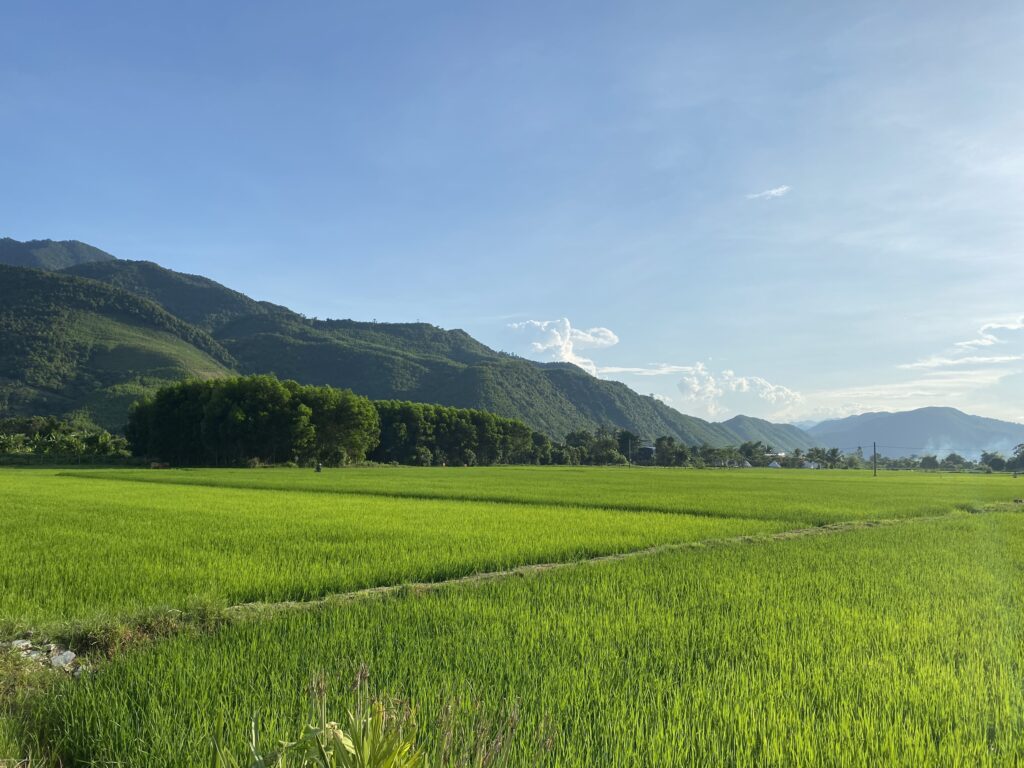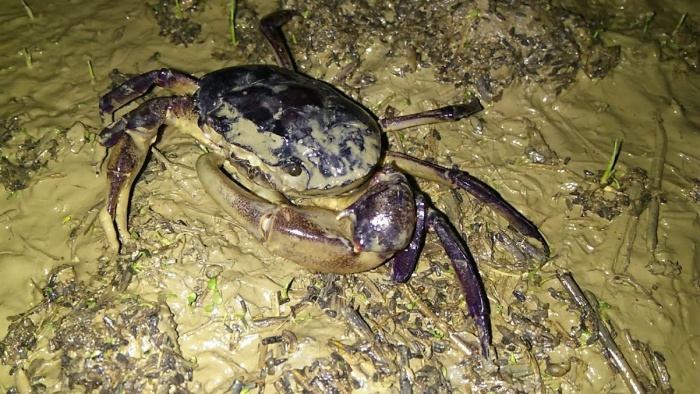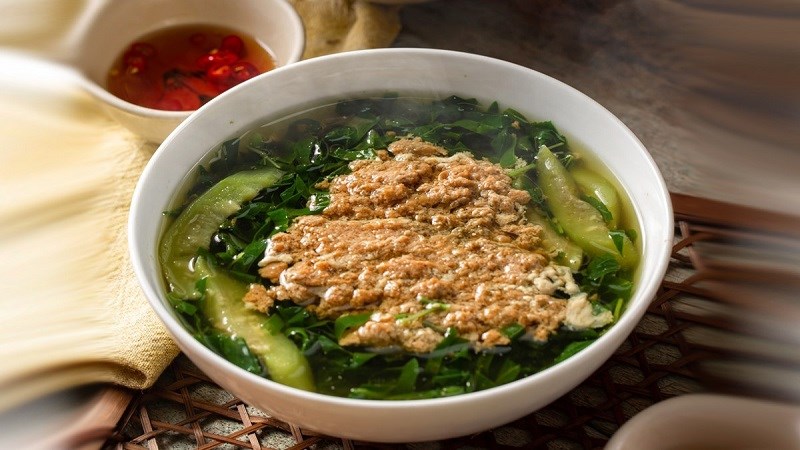We were born among endless rice fields, our childhood memories filled with laughter and folk games. Back then, every evening during the rice season, my father would take advantage of the high water levels to go crab catching. He would return late at night, and the next morning, my mother would take the crabs to the market to sell, exchanging them for vegetables and meat.

Occasionally, I would ask my father to take me along. Under the bright light of the full moon, we would wade through the earthen banks, shining our flashlights into every nook and cranny in search of crabs. By the time the village had gone to sleep, all that was left was the sound of nature: the chirping of crickets, the croaking of frogs, and the sometime cry of joy from me when I spotted and caught a crab.
Catching crabs in their burrows is not easy; it requires some experience and keen observation. Distinguishing a crab hole from a snake or rat hole is no simple matter. Crab holes are usually dug near the waterline of the rice paddies, the entrance marked by numerous crab footprints. Additionally, there is usually fresh soil pushed up around the entrance. However, reaching into a hole does not guarantee a crab inside; it could be a snakehead fish or a catfish seeking refuge from the receding water. There were also times when I would put my hand in and feel a crab, only to be met with a painful pinch from its claws. But crab catching was perhaps one of the greatest joys and passions of us rural children, so we didn’t give up even when we got pinched.

Refreshing Crab Soup on a Summer Day
The simple delicious crab soup is a taste of home. The sweet and savory flavor of the crab meat combined with the sweetness of sponge gourd and malabar spinach makes it a wonderful addition to the family dinner table. I remember the crab soup my mother used to make. She would carefully prepare the crab roe and grind the crab meat very finely. Before cooking the crab, she would usually soak them in a basin of rice washing water for 5-10 minutes. She said that this would remove all the mud and sand from the crabs and prevent them from tasting muddy.

In rice-growing regions, crab is a delicacy not to be missed. It is said that smells and tastes are often what linger longest in our memories. This is true because to this day, I can still recall every detail of the flavor of my mother’s crab soup from that year.
